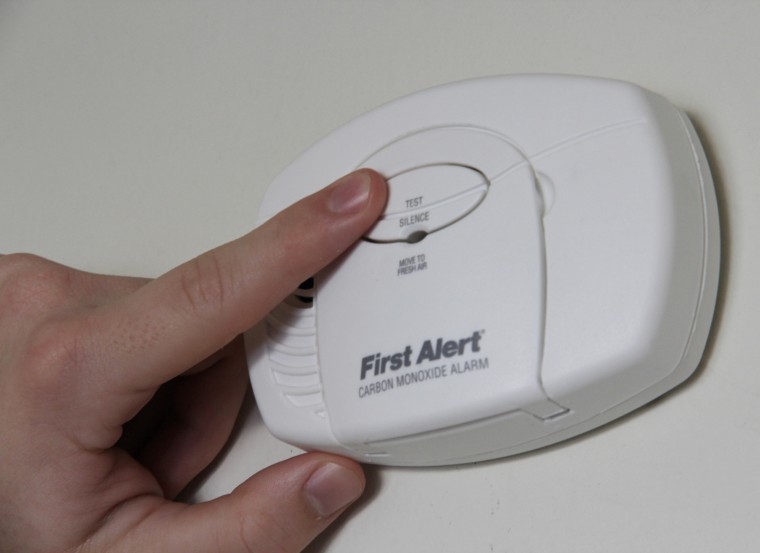DeKalb Fire Department spotlights carbon monoxide dangers
January 31, 2012
This month the DeKalb County Fire Department is spotlighting the dangers of carbon monoxide and is encouraging both students and citizens to take safety measures to prevent carbon monoxide leaks .
“Carbon monoxide can be life-threatening,” said fire chief Bruce Harrison. “We try to let people know how it comes to be and how to manage it.”
Carbon monoxide is clear, odorless and tasteless. The invisible gas can kill before the victim becomes aware of its presence. Harrison said running one’s motor vehicle, even with the garage door open, can cause a carbon monoxide leak.
Harrison also said the fire department already received 65 carbon monoxide detector malfunctions where they did not detect carbon monoxide this year. The fire department also responded to 75 events where carbon monoxide releases were detected.
“Those are pretty substantial numbers,” Harrison said. “That’s almost 200 runs right there. People have to maintain these devices in order to cut down on the number of malfunctions.”
Symptoms of carbon monoxide exposure include headaches, dizziness and nausea. Harrison said these symptoms can be confused with having the flu.
“The bottom line is that if you have any doubts, call 911,” Harrison said. “We can come out and confirm it.”
The effects of carbon monoxide vary person to person, Harrison said, it also depends on age, overall health and length and amount of exposure.
Sophomore communications major Patrick Pawlowski said he has a carbon monoxide detector in his home. A friend of his family suggested they buy one after doing house repairs.
“So we bought one the very next day and that exact night, it was going off,” Pawlowski said. “It turned out, so much carbon monoxide was leaking. If we hadn’t cleared out of there we would have died in our sleep.”
Pawlowski said he worries about carbon monoxide leaking into his dorm, unsure of whether his residence hall has a carbon monoxide alarm.
Mike Stang , executive director of Housing and Dining, said residence halls do not contain or need carbon monoxide detectors.
“We don’t use gas heat, so there’s no gas to be detecting carbon monoxide from,” Stang said. “We use steam heat.”
Therefore, students living in residence halls need not worry about carbon monoxide leaks.
Some students living in apartments are also unaware of any present carbon monoxide alarms.
“I don’t really worry about it because it hasn’t come to mind,” said Eric Smith, junior jazz studies major.
Harrison said making sure the alarms are present and working is essential.
“Off-student-housing is where you have to be sure,” Harrison said. “They should know and should be asking. Carbon monoxide detection is required in the city of DeKalb and needs to be kept up and maintained.”
Harrison also said students living in apartments should talk with their landlords in case they have concerns or doubts about their carbon monoxide alarms.
Several building supply stores sell carbon monoxide alarms. Some stores also sell combinations of smoke detectors and carbon monoxide alarms.



